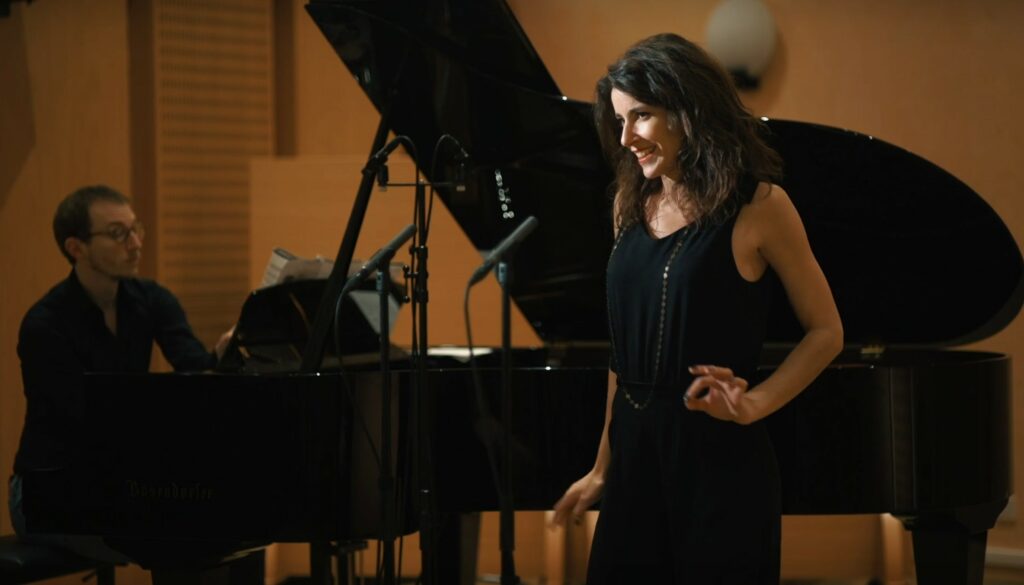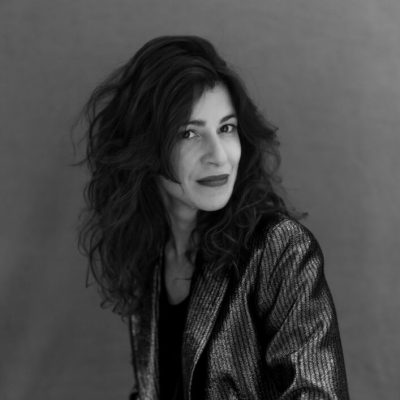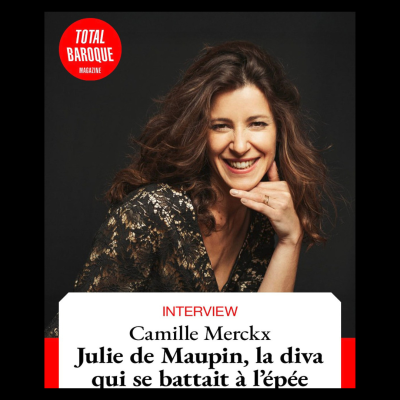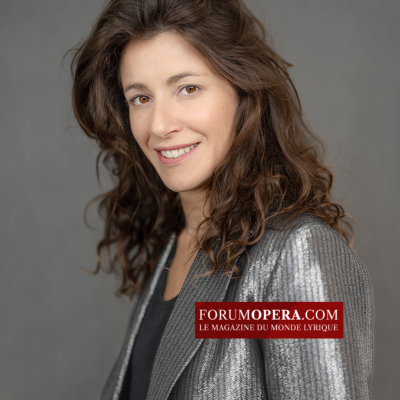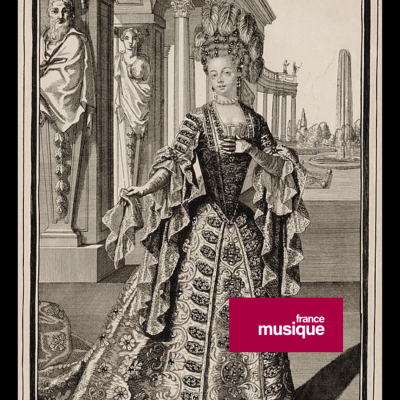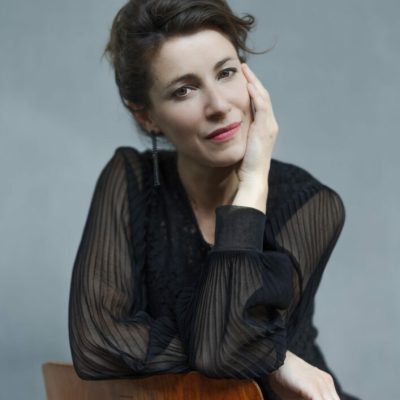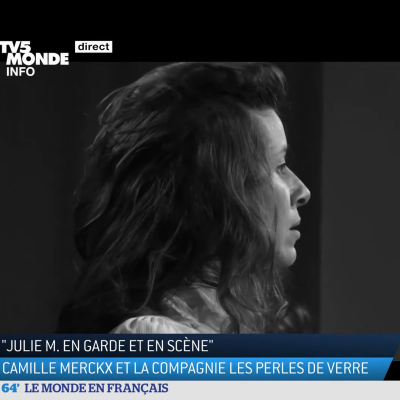BIOGRAPHY
Following a degree in musicology at the Sorbonne and a Diplôme Supérieur from the Jeune Chœur de Paris, Camille Merckx continued her training at the opera studio La Monnaie in Brussels, where she sang Garcia / Don Quichotte by Massenet conducted by Marc Minkowski and Musico / Manon Lescaut by Puccini conducted by Carlo Rizzi.
She was then invited to the Opéra-Comique (La Folie/ Le Carnaval et la Folie by Destouches), the Lausanne opera house (Rossini’s Isaura /Tancredi and Massenet’s Rosette/Manon), the Festival d’Aix en Provence and Salzburg’s Festival (Rihm’s Jakob Lenz), the Teatro Valli in Reggio Emilia (Wagner’s Flosshilde/Ring), at the Teatro Colon in Buenos Aires (Boulez’s Le Marteau sans Maitre) and at the Lille Opera house, where she created the roles of La Reine/ La Secrétaire/ La maitresse de maison in Gérard Pesson’s Trois Contes.
She has also sung the roles of Ottavia /L’Incoronazione di Poppea by Monteverdi at the festival le Temps Suspendu, Sorceress /Dido and Aenas by Purcell at the festival d’Automne in Rouen, La Voix de la Mère/ les Contes d’Hoffmann by Offenbach in many castles in Belgium , the title role of Carmen by Bizet conducted by Alphonse Cemin, and Dulcinée / Don Quichotte by Massenet at several festivals.
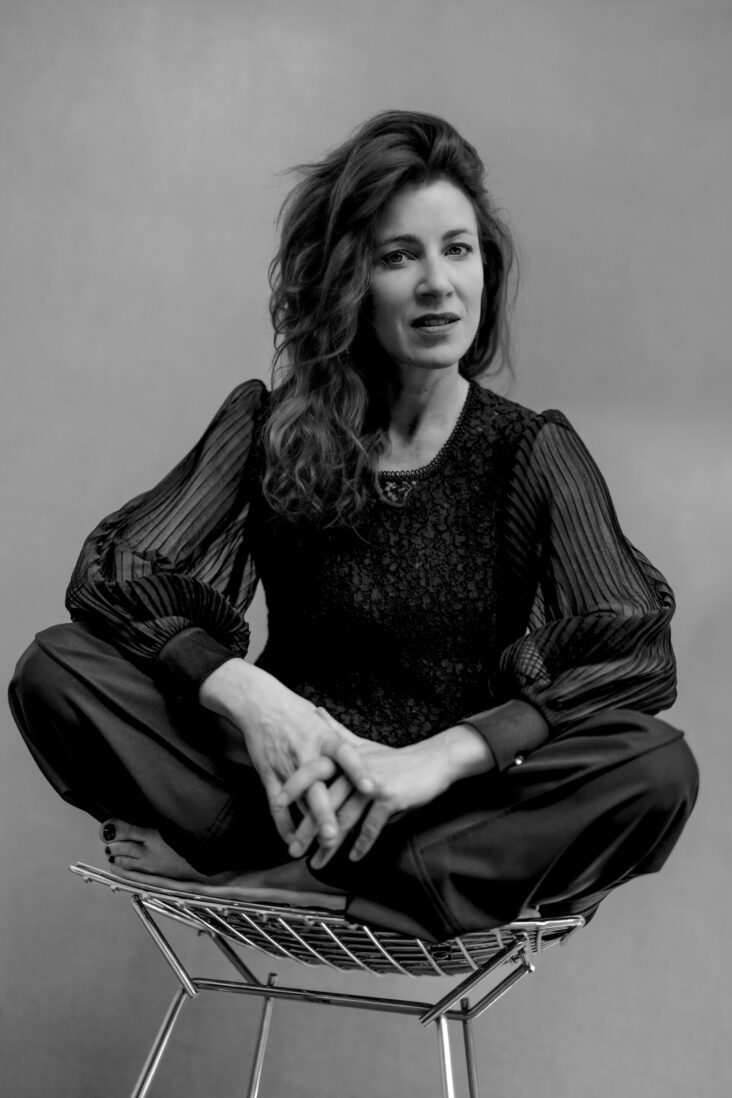
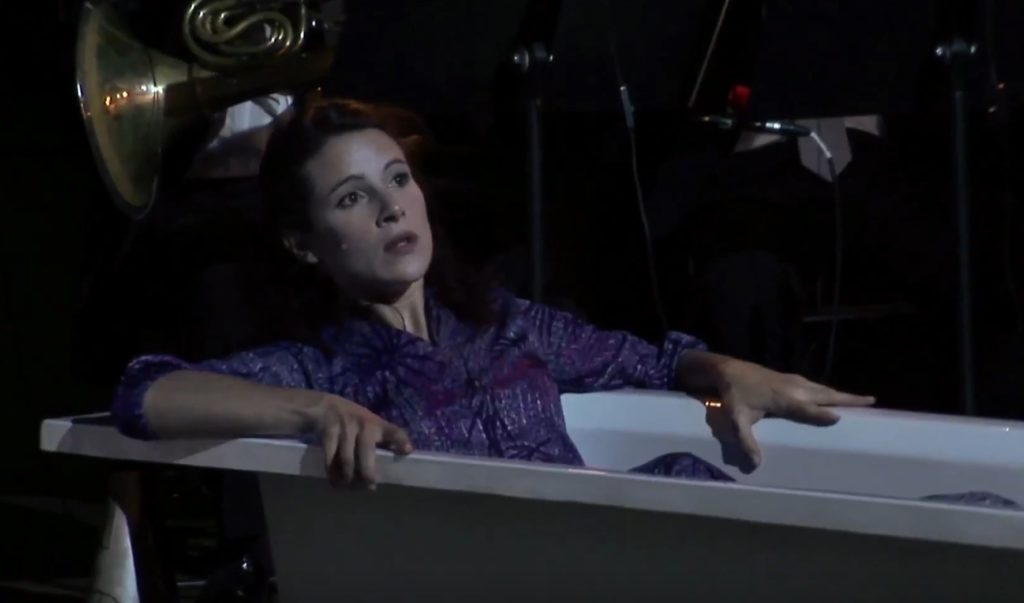
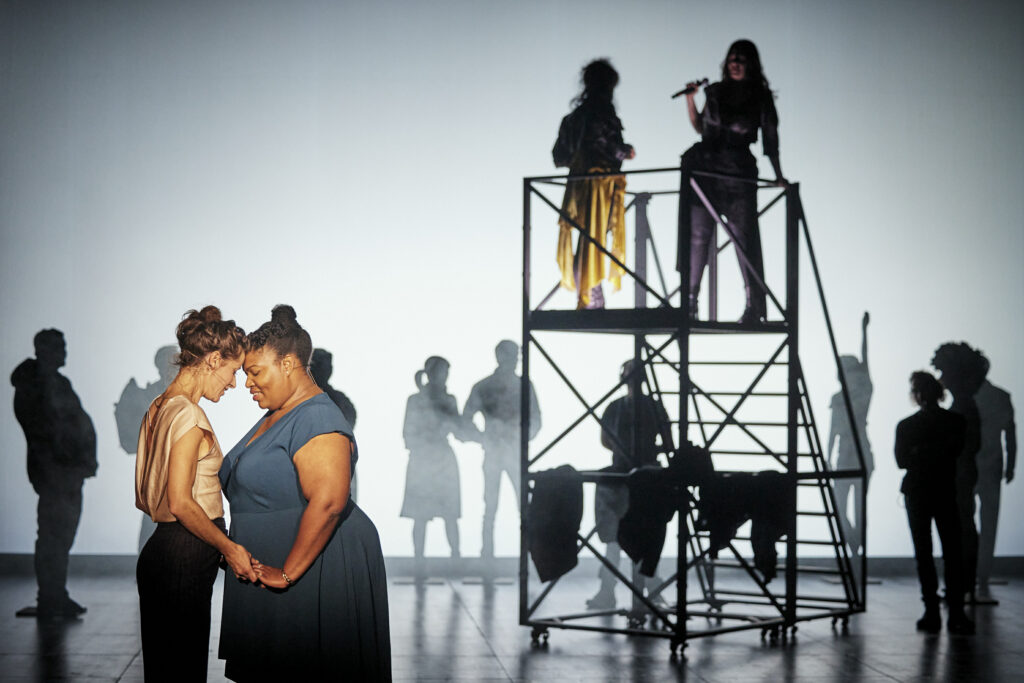
Contemporary music
She has been collaborating for several years with the ensemble Le Balcon and its conductor Maxime Pascal, confirming her taste for the contemporary repertoire. Together they have performed Fernando Fizsbein’s Avenida de los incas, in which she sang Alma, Boulez’s Marteau sans Maitre in La Bibliotecà Luis Angel -Bogotà, and Strauss’s Ariadne auf Naxos, in which she was Dryade.
With La Co[opéra]tive, she played the role of Marion in Les Ailes du désir by Othman Louati, conducted by Fiona Mombet and Léo Margue at the opera houses of Dijon, Nantes and Rennes.
She performed the contralto roles of the Minister, Narrator and Mother in George Benjamin’s Into the Little Hill, conducted by Alphonse Cemin and directed by Jacques Osinsky at the Théâtre de l’Athénée, Lille Opera House and Caen Theater. She was then invited to sing these roles in a production directed by Tim Murray at the Teatro del Canal/Teatro Real in Madrid and at the Ravel Festival, with the Ensemble Intercontemporain, conducted by Pierre Bleuse.
COncert & recital
In concert, she has sung Vivaldi’s Gloria with Julien Chauvin and the Concert de la Loge, Mozart’s Requiem with Benjamin Levy and the Cannes Orchestra, and Duruflé’s Requiem, accompanied by Vincent Warnier on the composer’s organ, at the Saint-Étienne-du-Mont Church.
In recital, she has performed programmes of French mélodies at Flagey in Brussels and the Petit Palais in Paris. She has sung Brahms’s Zwei Gesänge at La Monnaie and Mahler’s Das Lied von der Erde, conducted by Maxime Pascal, at the Nouveau Siècle in Lille. She reprised this work in Schoenberg’s chamber version at the Maribor Festival in Slovenia. At the Théâtre de l’Athénée’s Lundis Musicaux, she played the role of Zarka, the gypsy, in Janáček’s Diary of the Disappeared, alongside Petr Nekoranec and Alphonse Cemin.
repertoirE
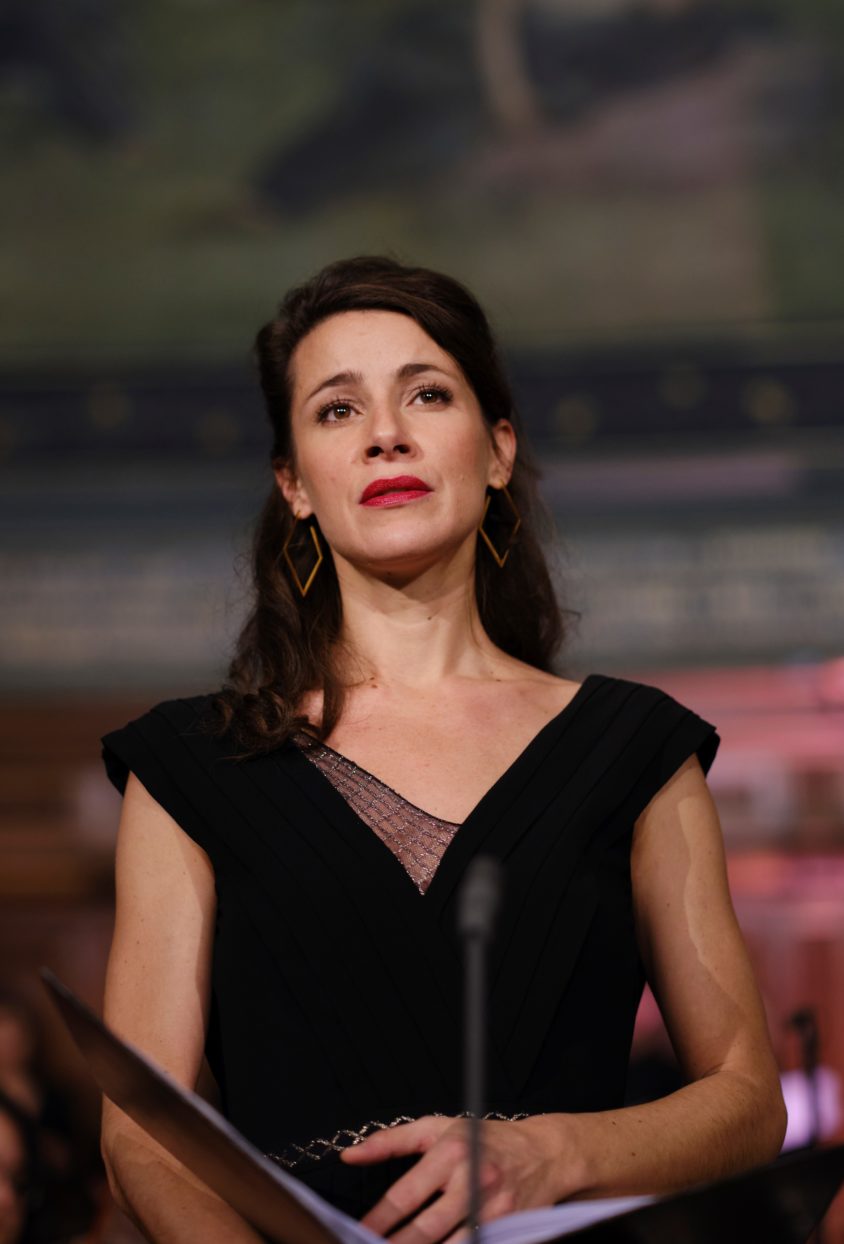
Bacri – Fleur et le Miroir magique – L’Oiseau*
Benjamin – Into the Little Hill – Ministre/ Narrateur/ Mère*
Bizet – Carmen – Mercedes*, Carmen*
Britten – Albert Herring – Nancy
Campra – Tancrède – Clorinde
Destouches – Le Carnaval et la Folie – la Folie*
Fiszbein – Avenida de los Incas 3518 – Alma*
Glück – Orphée et Eurydice – Orphée
Gounod – Faust – Dame Marthe*
Haendel – Rinaldo – Goffredo
Haendel – Giulio Cesare – Cornelia
Lully – Atys – Cybèle
Massenet – Don Quichotte – Garcias*, Dulcinée*
Massenet – Manon – Rosette*
Menotti – Le Consul – La mère
Mernier – La Dispute – Hermiane
Meyerbeer – Les Huguenots – la Dame d’honneur*
Monteverdi – L’incoronazione di Poppea -Ottavia* et Arnalta*
Monteverdi – Orfeo – Messagiera
Offenbach – Les Contes d’Hoffmann – Nicklaus* et La Mère*
Pesson – Trois contes – La Reine*, La Secrétaire*
Puccini – Suor Angelica – Suor Zelatrice*
Puccini – Il tabarro – Frugola*
Puccini– Manon Lescaut – Musico*
Purcell – Dido and Aenas – Sorceress*, Dido
Rihm – Jakob Lenz – une voix*
Rossini – L’Italienne à Alger – Isabella
Rossini – Tancrède – Isaura*
Strauss – Ariadne auf Naxos – Dryade*
Verdi – Rigoletto – Maddalena*
Wagner – Das Rheingold – Flosshilde*
Boulez – Le Marteau sans Maitre*
Brahms – Zwei Gesänge op.91*
Brahms – Alt Rhapsodie
Clérambault – Médée*
Duruflé – Requiem*
Dvorák – Requiem*
Dvorák – Mass in D*
Haydn – Ariane à Naxos*
Mahler – Das Lied von der Erde*
Mahler – Rückert Lieder*
Mahler– Lieder eines fahrenden Gesellen*
Mahler – Urlicht – symphonie n°2
Monteclair – La mort de Didon*
Monteverdi – Lettera amorosa*
Mozart – Requiem*
Pergolesi – Stabat Mater*
Rachmaninov – Vêpres*
Suarez Cifuentes – I/(I)/I Femmes*
Suarez Cifuentes – Hétérochronies*
Verdi – Requiem*
Vivaldi – Nisi Dominus*
Vivaldi – Stabat Mater*
*Chanté en scène
